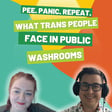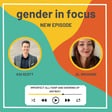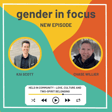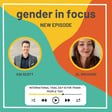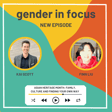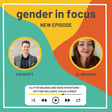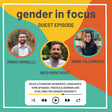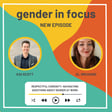
Law, Gender and Social Change with Adrienne Smith
In this episode of Gender in Focus, Kai sits down with Adrienne Smith (they/them), a trailblazing human rights lawyer and activist. Adrienne has spent years advocating for the legal rights of trans and non-binary individuals, working on groundbreaking cases that challenge the status quo and push for greater gender equality. From advocating for trans people’s right to safe and inclusive workplaces to fighting for equitable access to essential services, Adrienne's work is shaping a more inclusive future for trans and non-binary people.
Adrienne takes us through the intersection of law and gender, shedding light on how legal protections for trans and non-binary people are critical for creating inclusive, respectful spaces in our workplaces and communities. With clarity and warmth, they explain how small but powerful changes can have a huge impact on making our environments more welcoming for everyone. This episode is a gentle reminder that inclusivity isn’t just a feel-good idea - it’s something that can make a real difference and is, in fact, required by law. Adrienne shares why it’s not as complicated as it may seem to build environments where all people, no matter their gender identity, can feel safe and seen.
Check out all the links Adrienne mentioned below:
- BC Trans Legal Clinic (lawyer@cwhwc.com, phone: (604) 442-4352)
- CANLII.org
- adriennesmithlaw.com
___________
Want to get in touch? Contact us at podcast@transfocus.ca
Join us on social media:
LinkedIn | Instagram | TikTok | Threads | Facebook
